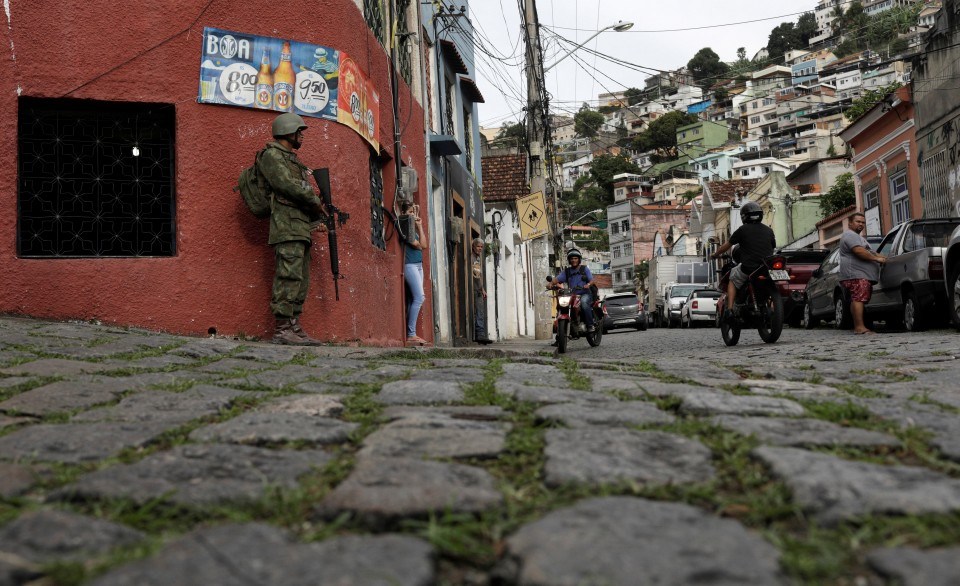Vinicius Mariano de Carvalho is senior lecturer of Brazilian studies at the Brazil Institute and at the Department of War Studies at King’s College London.
In 1986, just a year after Brazil shed over two decades of military rule, the famed Império Serrano samba school in Rio de Janeiro brought a new song to the country’s annual Carnival parade. “Eu quero, a bem da verdade” (“I want, for the sake of the truth”) immediately enthralled the public, with lyrics that spoke to the basic desires of all Brazilians. “Give me what’s mine / 20 years were taken from us,” rang the chorus, recalling all that the people had lost and endured under those repressive years.
This anthem captured the country’s newfound faith that democracy would deliver what they needed, whether it was food, housing, better wages, security, education or health. This hope culminated in the 1988 Constitution and the first direct presidential elections in 1989. But today, with the election of Jair Bolsonaro to the presidency, hope seems lost.
Brazilians are again facing historical traumas and the feeling that their basic needs are unfulfilled. A considerable portion of the Brazilian population is now expressing nostalgia for the military regime, even after the National Truth Commission revealed in December 2014 the abuses it had committed during its reign.
This year’s presidential election highlighted a country in deep despair, frustrated by the inadequacies of the current political model, one that did not truly break with what had historically ailed Brazilian politics. How did Brazil get here?
The Constitution of 1988 established a balance of powers in which the National Congress acquired the relevance that it should have in democracies, preventing excessive power in the hands of the president. Despite that, the new political order merely reinforced an old idea, present even before the 1964 coup that ushered in military rule: one of a Messianic leader, a strong man or woman, who would redeem and lead the country. Since then, Congress has been controlled by oligarchic political groups, some of them remnants of the military regime.
Considering the composition of the National Congress in post-dictatorial Brazil, the repetition of names (and families) in the legislature is impressive: Sarney, Calheiros, Maluf and Barbalho, among many others. These same groups of people have supported those very candidates who end up winning the presidency.
Brazil’s “coalitional presidentialism,” which is when a president’s party lacks a majority in the lower house of Parliament and must form a coalition with other parties, created the paradox of a strong president who is nevertheless held hostage by Congress. It was only a matter of time that this tension, which originated from the post-dictatorial political model, would create a fracture in Brazil’s democracy.
Parallel to this, the lengthy process of establishing transitional justice — the truth commission’s report arrived nearly three decades after the fall of the military regime — prevented civil-military relations to consolidate as expected in democratic regimes. The recurrent use of the armed forces for civilian activities, such as building infrastructure, ensuring public security and delivering health care and education, has given the military an image as an incorruptible and trustworthy institution.
These two elements, combined with heightened violence in Brazil, the economic crisis and disbelief in the political class as a whole due to the revelation of widespread corruption, led to the democratic fracture that Brazil is experiencing today.
A third factor must be considered, however, and it has to do with Brazilian society. Despite the democratic advances and the inclusion of public policies aimed at the promotion of racial and gender equality, Brazil is still a conservative country. This election has merely unveiled lingering sexism and racism. Protecting human rights is not yet a fundamental issue for political representatives, whether in Congress or in the executive branch. It is easy to see why Bolsonaro’s violent, homophobic and racist discourse echoed in parts of Brazil.
The incomplete and unsatisfactory democratic transition, the remarkable economic and social inequality, the growing disbelief in the traditional political class as capable of solving the problems of public security and assuring access to health and education, among many other economic and social problems, have both fragmented and polarized the country at the same time.
It remains to be seen how Congress, with Bolsonaro’s party now holding the second largest number of seats after the left-wing Workers’ Party, will reconcile its differences under the new president and work to assure governability. Bolsonaro has presented himself as the one who will set Brazilian democracy on the right path. But for the sake of the truth, one thing is certain. Democracy cannot succeed with violations of human rights and with policies of exclusion. The Império Serrano samba ended with the lyrics: “The storm has ceased / It is a time of calm / Ms. Freedom came along with hope.” It is to be seen whether Brazilians will be singing that song again.
This was produced by The WorldPost, a partnership of the Berggruen Institute and The Washington Post.





